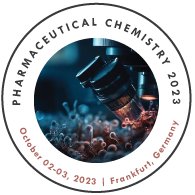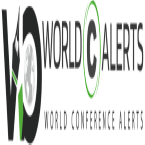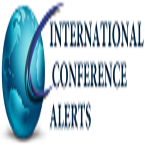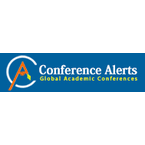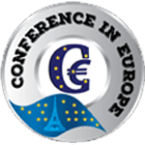Recommended Global Pharmaceutical Sciences Webinars & Conferences
Europe & UK
Asia Pacific & Middle East
Canada
PHARMACEUTICAL CHEMISTRY 2023
- Welcome Message
- Scientific Sessions
- Call for Contribution
- Why to Attend?
- Participation Options and Benefits
- Market Analysis
- Past Conference Report
Welcome Message
The process of studying pharmaceuticals, known as pharmaceutical chemistry, also involves developing new medications. The prevention and treatment of numerous diseases, diagnostic methods, drug metabolism, pharmacology, quality control, and drug chemistry are all included. This involves the development of new medications, their transport, their absorption, their metabolism, etc. Pharmaceutical or medicinal chemistry is involved with the creation of physiologically active compounds and the design of drugs. The goal of this is to acquire new chemical compounds that may aid in the development of novel medications. Organic chemistry, medical science, pharmaceutical science, and biochemistry are all used in pharmaceutical chemistry.
Scientific Sessions
Track 1: Pharmacology
Pharmacology is the branch concerned with drug action and also it is the study of interaction between the organism and the drug that effect biochemical functions either normal or abnormal. Pharmacology mainly deals with the research, discovery, and characterization of chemicals which show biological effects and the explanation of cellular and organismal function in relation to these chemicals.
- Pharmacometabolomics
- Pharmacomicrobiomics
- Pharmacogenomics
- Pharmacogenetics
Track 2: Pharmaceutics
Pharmaceutics is the process concerned with the process of creating the dosage form such as a pills or a powder for intravenous injection of a therapeutic that is to be used by patients. It involves Drug formulation and drug manufacturing. It is also known as the Science of dosage drug design. Its process includes turning of a new entity chemical into safe and effective drug.
- Pharmaceutical Formulation
- Dispensing Pharmacy
- Pharmaceutical Technology
Track 3: Pharmacognosy
Pharmacognosy referred to the study of natural sources like plants as Drug source. It is the oldest modern science. It involves the quality control of drug based on macroscopic and microscopic examinations of crude drug. It involves the detailed research about the physical, chemical, biological, biochemical properties of drugs and search for the new drugs.
- Crude Drug
- Ethanopharmacology
- Pheromones
- Phytochemicals
Track 4: Pharmaceutical Chemistry in Drug Discovery
Pharmaceutical Chemistry plays an important role in the process of drug discovery through the synthesis and selection of compounds that created a structure-activity relationships and achieved the drug efficacy and safety in preclinical animal testing. The role of the Pharmaceutical Chemistry in drug discovery has undergone major changes in the past 25 years, mainly because of the introduction of various new technologies have changed the role of pharmaceutical chemistry in modern era.
- Combinatorial chemistry
- High-throughput screening
- Molecularly defined targets
- Pharmacoeconomics
Track 5: Pharmacokinetic
Pharmacokinetic is the process used to state the fate of the substance administered to the body. It may include Pharmaceutical drugs, pesticides etc. It shows how the body effect the drug after the administration through the absorption and distribution of drug. Pharmacokinetic activities are effected by the route of administration and the drug dose.
- Pharmacokinetic Models
- Clinical Pharmacokinetic
- Mass spectrophotometry
- Ecotoxicology
Track 6: Toxicology
Toxicology help to find the harmful effects that drug or chemical can have on the body by studying their chemical action. The goal of toxicology is to contribute to the knowledge of harmful actions of the chemicals substances to study their chemical action and to examine the risk of the drugs on the human body on the basis of biological experiments on biological system. Toxicology contributes in the treatment of cancer as some toxins are used as drugs for killing tumor cells.
- Dose Response complexities
- Toxicology in Cancer Research
Track 7: Pharmacodynamics
Pharmacodynamics is the study of how the drug effect the body. It is concerned with the effects of drugs and their mechanism of action. It discusses the chemicals with biological receptors. Pharmacodynamics is molecular and physiological effect of the drug on body including receptor binding, post receptor effect and chemical interactions. The receptor activation and biological response are related to the drug concentration.
- Effect of ageing on Pharmacodynamics
- Drug-receptor Interaction
- Pharmacodynamics Biomarkers
Track 8: Pharmacophore
Pharmacophore is an assembly of steric and electronic features that is important to confirm the optimal supra molecular interactions with a specific biological target and to trigger or block its biological response. Pharmacophore describes how the structurally different ligand bind to the common receptor. The pharmacophoric points may be located on the ligand itself or may be projected points supposed to be located in the receptor. Some typical pharmacophore features include hydrophobic centroids, aromatic rings, hydrogen bond acceptors or donors, cations, and anions.
- Pharmacophore Fingerprinting
- Chemoinformatic
- Database Mining
- Ligand based Pharmacophore Modeling
Track 9: Bioisostere
Bioisostere are the groups which have similar Physical or chemical properties which produce broadly similar biological properties to another chemical compound. Bioisosterism is used to reduce toxicity. Bioisostere is a molecule resulting from the exchange of atom or a group of atom. The bioisosteric replacement may be physiologically or topologically.
- Classical Bioisostere
- Non- Classical Bioisostere
Track 10: - Prequalification of Pharmacovigilance
Pharmacovigilance is the study of related to the detection, understanding and prevention of adverse effect of medicines or drugs. All the vaccines and medicine goes through several testing and clinical trials before they are authorized to use. It helps to minimize the risk of harm to the user.
- Augmented Pharmaceutical Response
- Hypersensitivity
- Ecopharmacovigilance
Track 11: Drug Design and Drug Discovery
Pharmaceutical or medicinal chemistry involves the designing (drug design) and synthesis of biologically active molecules/ drugs. Drug discovery is a complex, risky and costly process where as drug design is an inventive process of finding new medications based on knowledge and research. Drug development and discovery includes preclinical research on cell-based and animal models and clinical trials on humans, and finally move forward to the step of obtaining regulatory approval in order to market the drug.
- Animal clinical trial
- Human clinical trial
- Bioinformatics in Drug designing
Track 12: Immunopharmacology
Immunology deals with the drug acting on immune system. It estimates the risk to the immune system from exposure to drugs. Immunopharmacology is the process of combinatorial therapy which involves the use of multiple antitumor drugs that have different mechanisms of action. Also, combinatorial treatment often combine drugs that target different phases of the cell cycle.
- Immunostimulation
- Immunosubstitution
- Immunosuppression
Track 13: Therapeutic Drug Monitoring
Therapeutic drug monitoring is a test to measure the amount of certain medicines in blood. It is just to make sure that the amount of drug taken is effective and safe for one’s body. TDM is also used to monitor food-drug, drug-drug interaction. The process of TDM is based on the assumption that there is a definable relationship among the dose and plasma or blood drug concentration, and among concentration and therapeutic effects.
- Detoxification
- Decontamination
- Plasma- Drug Concentration
Track 14: Toxicodynamics
Toxicodynamics, states the dynamic interactions between a toxicant with a biological target and its biological effects. A biological target, also called as the site of action, can be binding proteins, ion channels, DNA or a variety of other receptors. The process of toxicodynamics can be useful for the applications related to environmental risk assessment by executing toxicokinetic-toxicodynamic (TKTD) models.
- Genotoxic
- Endocrine disruptors
- Androgen receptor mediated
- Estrogen receptor mediated
Track 15: Cosmatovigilance
Cosmatovigilance is a systematic monitoring of the safety of cosmetic products in terms of human health. This aims to detect the adverse effects of cosmetic products, and to prevent the adverse effects by taking appropriate measures. It is different from the surveillance carried by the industries for the purpose of product selling. Regulations for cosmetic products primarily address the safety of products that may be used by large populations of healthy consumers.
- Nutricosmetics
- Cosmoceuticals
- Cosmatovigilance Regulation
Track 16: Cheminformatics
Cheminformatics is a new field which focus on the Collection, Manipulation and Storage of the chemical data which includes the structure, spectra, properties, molecular formulas and activities of the small chemical compound. Cheminformatics is the mixing of those information resources to transform data into information and information into knowledge for the intended purpose of making better decisions faster in the area of drug lead identification and optimization.
- Cheminformatics in Drug Discovery
- Data mining
- Virtual Screening
- Virtual Libraries
Track 17: Advancement- Moving away from surgeries
Recent study shows that a tumor like disease in Brain known as CCMs (Cerebral Cavernous Malformations) can only be treated through surgeries earlier but now the discovery of the mutation has the potential to develop novel therapeutic strategies. Also due to Artificial Intelligence in pharmaceuticals, Humans will no longer be the subject of drug trials.
- Advancement in cancer treatment
- Recent innovations in R and D technology
- Approaches of pharmaceutical science
Track 19: Clinical Pharmacology
Clinical Pharmacology has a broad scope, from the discovery of new target molecules, to the effects of drug usage in whole populations. The main aim of clinical pharmacology is to generate data for optimum use of drugs and the practice of evidence based medicine.
- Psychopharmacology
- Rational prescribing
Track 20: Delta Covid Variant and Pharmaceutical Chemistry
Pharmaceutical chemistry has a key role to play in understanding everything from viral structure to pathogenesis, isolation of vaccines and therapies, as well as in the development of materials and techniques used by basic researchers, virologists and clinicians.
- Mechanism of Infection
- Development in Diagnostics
- Covid Vaccine Efficacy for Delta Variant
Track 21: Molecular Drug Designing
Drug designing referred to the invention of new medications using knowledge and targets. The drug is an organic small molecule that inhibits or activates the function of a biomolecule such as a protein, which in turn results in a therapeutic benefit to the patient. Therefore, a drug design involves the design of molecules that are complementary in shape and charge to the bio molecular target with which they interact and therefore will bind to it.
- Computational drug design
- Drug Targets
- Molecular modifications
Track 22: Pharmacological Stimulation
Pharmacological Stimulation refers to the increase in the function of various drugs. It promotes the cell cycle progression. Pharmacological stimulation of the 5-HT3 receptor was found to improve the hyperlocomotor effects of d-amphetamine while systematic inhibition reduce it in rats. Pharmacological stimulation can act to increase the ductal electrolyte transport in the striated and excretory ducts of the rat sub maxillary gland.
- Tear stimulants
- Meta-plasticity
- Neuronal Plasticity
Call for Contribution
Authors are invited to contribute and help in shape of the conference through submissions of their research abstract, papers and e-posters. Also, the research contribution helps to regulate the conceptual, constructive experimental, theoretical and empirical work in all areas of Pharmaceutical Science are pleasantly invited for presentation at the conference. The conference ask for contributions of abstracts, papers that address themes and topics of the conference, including figures, tables and references of research materials.
Why to Attend?
- The Pharmaceutical Conference cooperates with associates around the world who focused on learning concerning surgical and its specialties. This is often the best opportunity to reach the largest gathering participants. This event is recognized for distribution the data demonstrations, knowledge, information and B2B meetings with industrialists and prospective clients to form a splash with innovative products.
- Advantage from updates and bits of knowledge on the newest pharmaceuticals drugs procedure, and in addition recommendations for guaranteeing best practice and Potentiate results.
- Associate with 200+ amazing representatives who are included in pharmaceuticals drugs issue resolve shared difficulties and expansion from the broad familiarization of others.
- Attend a range of informative seminars, engaging interactive presentations, and keynote panel discussions with key policy manufactures and specialists in Pharmaceutical Conference
- Be the first to showcase your research, innovation, and brand to gain competitive advantages. Meet your target audience and explore your product and services.
- To Meet Experts
- Learning in a New Space
- New Tips & Tactics
- Certification
- Global Networking
- Rebuild New Customer Base
- Brand Establishment
- Best platform for international business and Networking opportunities
- Keynote forums by eminent Professors, Researchers
- Novel techniques to benefit your research and innovation
- Open Innovation Challenges
- Meet the Editors of referred journals, Society and Association members across the world
- Poster presentations by Young Researchers on Pharmaceutical Chemistry
- Excellent platform to showcase the latest innovations and concepts
- Lectures from prominent speakers
Participation Options and Benefits
Participation Options:
Pharmaceutical Chemistry 2023 provides the participants with different modes or ways to participate as Delegate or Speaker under ACADEMIC / STUDENT / BUSINESS Category. Mode of participation is Berlin, Germany through Power Point Presentation/ Video Presentation on Cisco Berlin, Germany.
- Keynote speaker: 45-50 minutes
- Speaker (oral presentation): 25-30 minutes (only one person can present)
- Speaker (workshop): 45-50 minutes (more than 1 can present)
- Speaker (special session): 45-50 minutes (more than 1 can present)
- Speaker (symposium): more than 45 minutes (more than 1 can present)
- Delegate(only registration): will have access to all the sessions with all the benefits of registration
- Poster presenter: can present a poster and enjoy the benefits of delegate
- Remote attendance: can participate via video presentation or e-poster presentation
- Exhibitor: can exhibit his/her company’s products by booking exhibitor booths of different sizes
- Media partner
- Sponsor
- Collaborator
Participation Benefits:
- Attend Keynote Presentation by world’s most eminent researchers
- Access to all the sessions
- Get Participation certificate
- Get worldwide acknowledgment to your profile and Research
- Get your abstracts published with unique DOI in International Journals
- Get up to 50% discounts for publishing your entire article in our open access International Journals
- Get Handbooks and conference kits
- Get an access to the network with eminent personalities from worldwide
- To learn and expand the knowledge from Top Surgeons, Professionals
- Get your Abstract published and Certified for your participation
- Mark new links and trigger your profession
- Acquire a global exposure to your research idea
Market Analysis
Global Pharmaceutical Chemistry for Drug Discovery Market report is a complete study on how the present state is for the market. This report provides a detailed synopsis for the Pharmaceutical Chemistry for Drug Discovery industry. It includes the detailed market applications, definitions, classification and for most essential the industry chain structure along with market trends and uses SWOT analysis. The report provides a detailed information about the Pharmaceutical Chemistry for Drug Discovery Market and shows the important product developments and tracks recent acquisitions, merges and research in the industry. This report provides the forecast for the years 2019 to 2026.
The global excipients market is estimated to grow from USD 6.17 Billion in 2017 to USD 9.78 Billion by 2025, at a CAGR of 5.93% during the forecast period from 2018- 2025. The global chemistry excipients market is projected to reach USD 9.7 billion by 2025 from USD 6.9 billion in 2019, at a CAGR of 5.8%. The global chemistry is expected to reach USD 9.04 Billion by 2024 from USD 5.71 Billion in 2016 at CAGR of 5.92% (Detailed analysis of the market CAGR is provided in the report).s
Global Ophthalmic Drugs Market size was valued at $29,613 million in 2016, and is expected to reach $42,663 million by 2023, registering a CAGR of 5.3% from 2017 to 2023. Ophthalmic drugs are extensively used to treat glaucoma, cataract, diabetic retinopathy, and other ophthalmic disorders. Introduction of novel ocular drug delivery approaches in the market has driven the manufacturers to develop innovative therapeutic approaches for the treatment of ophthalmic disorders. According to the American Academy of Ophthalmology, 11 million people in the U.S. suffer from age-related macular degeneration (AMD), while approximately 10% of them are inflicted with wet AMD. Such trends in ophthalmic disorders across the globe contribute to the growth of the market.
Past Conference Report
PHARMACEUTICAL CHEMISTRY 2022
Past Reports Gallery
To Collaborate Scientific Professionals around the World
Conference Date October 02-03, 2023
Speaker Opportunity
Useful Links
Past Conference Report
Supported By
All accepted abstracts will be published in respective Conference Series International Journals.
Abstracts will be provided with Digital Object Identifier by
